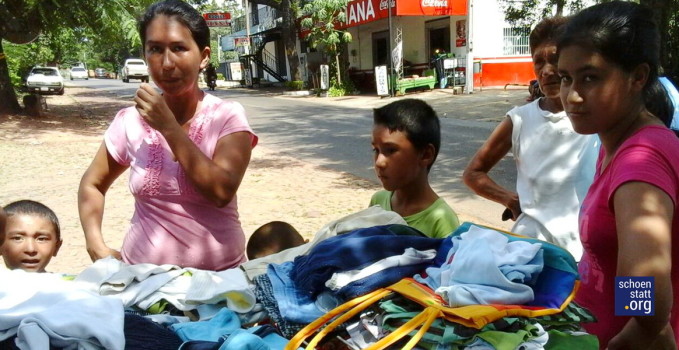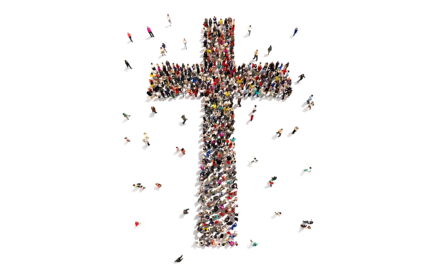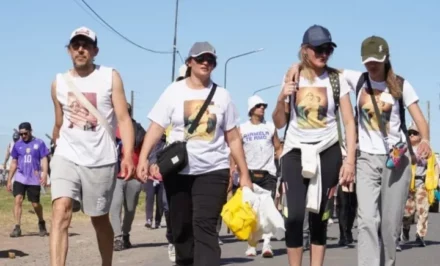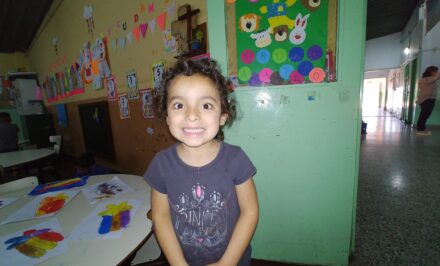FRANCIS IN ROME – HOLY YEAR OF MERCY •
“It is more blessed to give than to receive.” On Saturday 9 April in the Holy Year, Pope Francis once again presided over the Jubilee Audience before thousands of pilgrims and faithful in St. Peter’s Square.
Each of us could ask ourselves: “Am I able to stop and look in the face, in the eye of that person who is asking me? Am I able?” Thus, we must not identify almsgiving with the simple coin offered in haste, without looking at the person and without stopping to talk so as to understand what he or she truly needs.”
Giving alms…already in the first statutes of the Schoenstatt Apostolic Movement, this is one of the apostolic options. It’s not only the beggars on the street that ask us for small change. It is also the children in families with few resources who ask us for the things they are missing for school. It’s the children of the squatter camp who don’t live in the Children’s Home in Villa Ballester because there is no money to extend the building. It’s the children with Downs Syndrome at Hogar de Maria in Mar del Plata who depend on our generosity. It’s the families who live in precarious conditions on the outskirts of Asunción who for just 200€ could have a safe home. It’s the Syrian refugees who arrive without anything…
“Thus, almsgiving is a gesture of love that is directed at those we meet: it is a gesture of sincere attention to those who approach us and ask for our help, done in secret where God alone sees and understands the value of the act performed.”
The other day a member of the Schoenstatt.org team went to hand out clothes and games to poor families in Asunción. “We’re handing out games. The children’s faces were priceless. Such little things but their eyes lit up. One girl got a hair fastener. How happy she is! The word spreads and more came to look at the clothes. They tried them on to see if it fit…”
“It is more blessed to give than to receive.” It’s true.
“I’m sorry that I didn’t answer your Whatsapp message last night,” said the collaborator. “I was up all night ironing clothes that people gave me for the poor.” Ironing clothes creates a culture of encounter, a covenant culture with the poor.
Complete text of Pope Francis’ catechesis during the jubilee audience, 9 April 2016
Dear Brothers and Sisters, Good morning,
The Gospel passage we have heard allows us to discover an essential aspect of mercy: almsgiving. It might seem simple to give alms, but we must be careful not to empty this gesture of its importance. Indeed, the term “alms”, derives from the Greek and actually means “mercy”. Therefore, almsgiving must carry with it all the richness of mercy. And as mercy has a thousand paths, a thousand ways, thus almsgiving is expressed in many ways, in order to alleviate the hardship of those who are in need.
The duty to give alms is as ancient as the Bible. Sacrifice and almsgiving were two duties that a devout person had to comply with. There are two important passages in the Old Testament where God demands special attention for the poor, who at times are destitute, strangers, orphans and widows. In the Bible this continuous refrain — the needy, the widow, the stranger, the sojourner, the orphan — is recurrent. Because God wants his people to watch over these brothers and sisters of ours; moreover, I would say that they are at the very centre of the message: to praise God through sacrifice and to praise God through almsgiving.
Along with the obligation to remember them, a precious direction is also given: “you shall give to him freely, and your heart shall not be grudging when you give to him” (Dt 15:10). This means, first of all, that charity requires an attitude of inner joy. Offering mercy cannot be a burden or an annoyance from which to free ourselves in haste. How many people justify their not giving alms by saying: “What kind of person is this? If I give him something perhaps he will go buy wine to get drunk”. If he gets drunk, it is because he sees no alternatives! And you, what do you do in secret, that no one sees? Yet you judge that poor man who asks you for a coin for a glass of wine? I like to recall the episode of the elderly Tobit who, after receiving a large sum of money, called his son and instructed him, saying: “Give alms… to all who live uprightly […]. Do not turn your face away from any poor man, and the face of God will not be turned away from you” (Tob 4:7-8). These are very wise words that help us understand the value of almsgiving.
Jesus, as we heard, gave us an irreplaceable lesson in this regard. In the first place, he asks us not to give alms in order to be praised and admired by people for our generosity: do so in such a way that your right hand does not know what your left hand is doing (cf. Mt 6:3). It is not appearances that count, but the capacity to stop in order to look in the face of that person asking for help. We can each ask ourselves: “Am I able to stop and look in the face, in the eye of that person who is asking me? Am I able?”. Thus, we must not identify almsgiving with the simple coin offered in haste, without looking at the person and without stopping to talk so as to understand what he or she truly needs. At the same time, we must distinguish between the poor and the various forms of begging that do not render a good service to the truly poor. Thus, almsgiving is a gesture of love that is directed at those we meet: it is a gesture of sincere attention to those who approach us and ask for our help, done in secret where God alone sees and understands the value of the act performed.
Giving alms must be for us too something that is a sacrifice. I remember a mother: she had three children, six, five and three years old, more or less. She always taught her children that one should give alms to the people who ask for it. They were at lunch: each one was eating a Milanese cutlet, as we say in my land, “breaded”. There was a knock at the door. The oldest went to open the door and returned: “Mamma, there’s a poor person asking for something to eat”. — “What should we do?”, the mother asked. “Let’s give him something”, they all said, “let’s give something to him!”. — “Okay: take half of your cutlet, you the other half, you the other half, and we’ll make two sandwiches” — “Ah, no, mamma, no!” — “No? You give him some of yours, give something that costs you”. This is involving yourself with the poor person. I deprive myself of something of my own in order to give it to you. I say to parents: raise your children to give alms in this way, to be generous with what they have.
Thus, let us make the words of the Apostle Paul our own: “In all things I have shown you that by so toiling one must help the weak, remembering the words of the Lord Jesus, who said, ‘It is more blessed to give than to receive’” (Acts 20:35; cf. 2 Cor 9:7). Thank you!
(English translation from www.vatican.va)
















